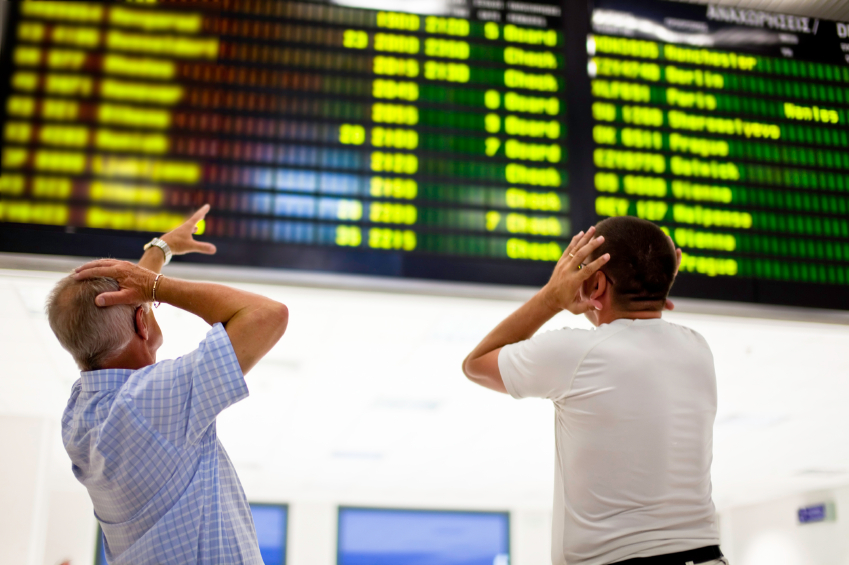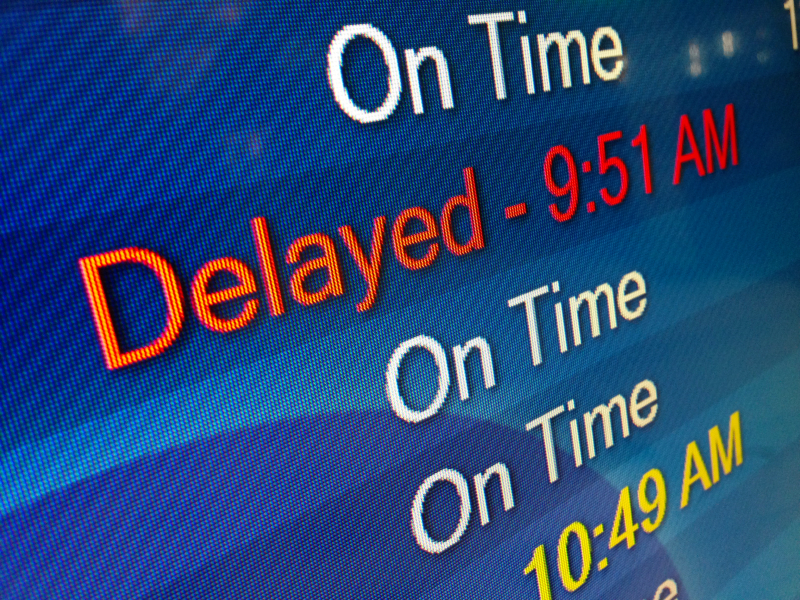I Let A Client Down. Was It My Fault?
Since starting my company in 2004, I’ve never been late to a training or speaking engagement. I take my obligation to clients seriously, and I do what I must to ensure that I’ll be in the front of the room, on time and well prepared, as I’ve been contracted to be.
A few years ago, I even drove through the night from New York to Columbus, Ohio (562 miles) when my flight was canceled due to inclement weather and the airline couldn’t guarantee an alternate flight that would get me to my training on time. (My wife wasn’t thrilled with my decision, and in hindsight, driving through a snowstorm might not have been the smartest call.)
Fast forward to last week, when I was slated to speak to a group of about 35 financial professionals in Boston. Here’s what happened.
I was due to begin my speech at 1:00 p.m. I booked an Acela (Amtrak’s fast train, which I take frequently and has a good track record of on-time arrivals) that would have had me in Boston (from New York) by 11:25 a.m. If everything ran on time, I would have arrived to the client site by 11:50 a.m.
Because I know things go wrong during travel, I gave myself an hour of buffer time. Clearly, that wasn’t enough. My train arrived almost two hours late. I missed my own presentation.
My client was more forgiving than they needed to be—I would have understood if they had expressed their disappointment in me—but I felt awful and have been beating myself up since. (They rescheduled the speech for two hours later, and fortunately, most of the attendees were able to make it at the later time.)
As I reflect on what went wrong and try to prevent it from happening again, it seems that I have three options:
1. I could count it as a fluke and change nothing
I could view this as a mere fluke—an anomaly that’s occurred only once in a decade of travel. (I’ve had many flight delays through the years, but always allowed sufficient time.) After all, what I owe clients is an honest effort to fulfill my obligations to them—and if there are unexpected travel delays that couldn’t reasonably be anticipated, I shouldn’t be held accountable.
2. I could take an earlier train
On the surface, this probably seems like the most obvious option. But I would have had to wake up by 5:00 a.m. to make an earlier train, and I calculated that I would be too exhausted to be at the top of my speaking game by the afternoon. My general preference is to balance a reasonable amount of buffer time with sufficient sleep—but perhaps I’m being a bit too precious about my sleep.
3. I could travel the day before
This, too, may seem like an obvious choice. But if I travel the day before, it means I lose yet another night with my wife and toddler son. If it seems necessary to travel the day before to make it on time, I’ll happily do it—but for shorter-distance travel with an afternoon start time, I try to avoid doing so.
[poll id=”43″]



It happens. If it happens all the time, then it’s a problem.
This (almost) happened to me recently. I had to fly across country for a late afternoon training session. I thought I allowed enough time — taking red-eye so I could arrive early morning, take a quick nap, shower and refresh. Flight was delayed and I barely had time to change and run to session. Even though I wasn’t late, I also wasn’t at my best. Lesson – give yourself MORE than enough time!
I’m with Deborah. You clearly have a good track record. Given this experience, next time you may opt for the wee early train; but it wasn’t as if you were jetting off to a distant country. Trains trek up and down the east coast each day. Sometimes they run late. However, I’ve yet to experience once that arrived two hours later than scheduled.
You’re rationale was sound. It just didn’t pan out this time. C’est la vie (so don’t fret).
I allow two hours buffer at a minimum.
Regards, Paul
This sort of thing devastates me, too; it’s a horrible feeling! Even though it isn’t your fault, you feel in some way, it is. Opting for an extended buffer time and getting through more presentations on time should help assuage your guilt and put it behind you.